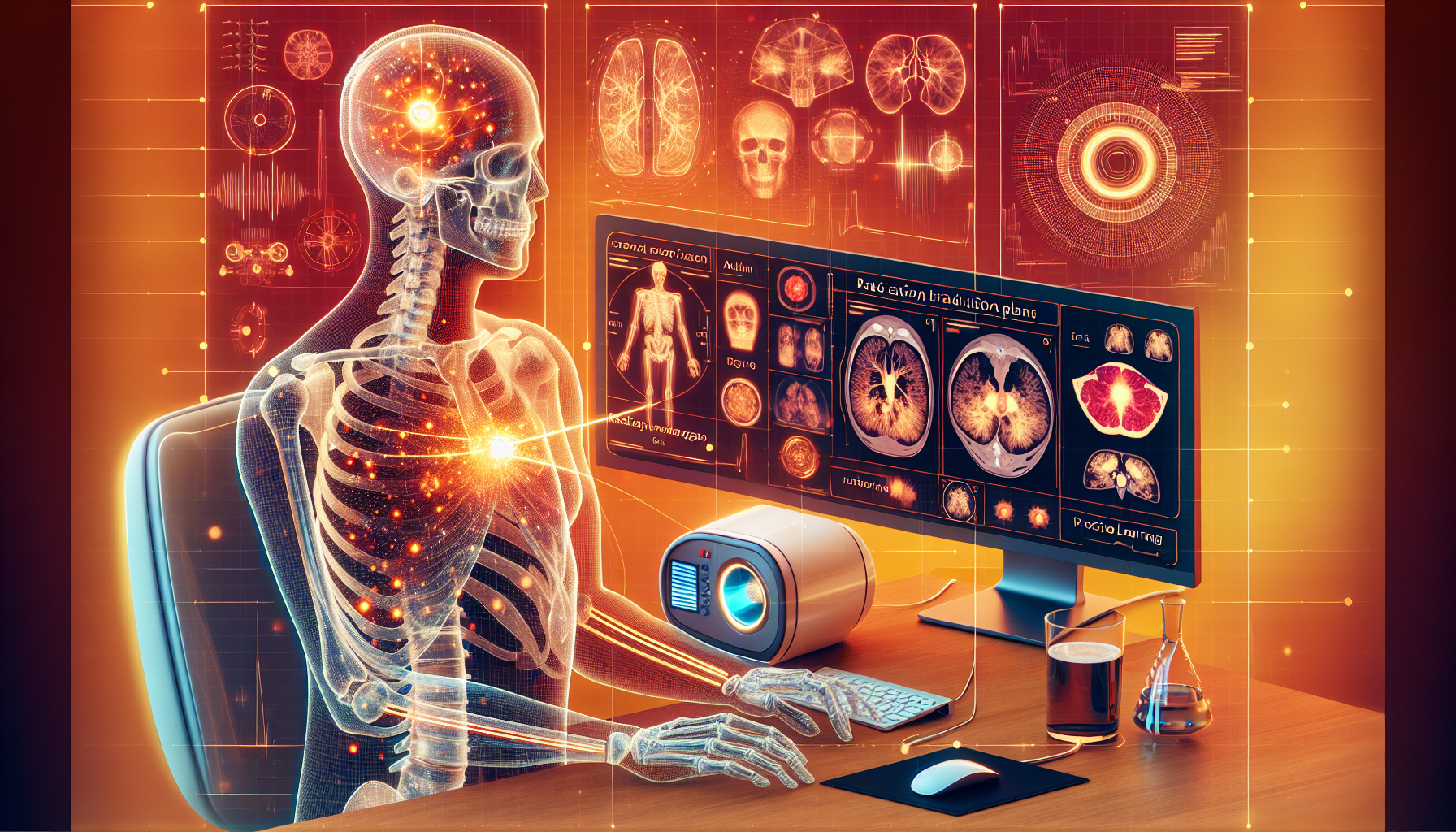Revolutionizing Thoracic Radiation Oncology: The Transformative Impact of Artificial Intelligence
🧠 Delve into the transformative world of artificial intelligence in thoracic radiation oncology, where innovation meets patient care. AI holds remarkable promise in streamlining workflows and elevating the quality of care for lung cancer patients. By integrating advanced AI methods in patient evaluation and treatment planning, we stand on the brink of a new era in oncology care.
🚀 At the forefront of this revolution, AI harnesses the power of medical imaging analysis and natural language processing to gather and interpret clinical data, empowering treatment decisions like never before. Imagine the ability to predict tumor histology through imaging, determine tumor radiosensitivity with CT-derived features, and assess early tumor response using sequential PET/CT images. These AI-driven insights could redefine precision in patient care.
🔍 Deep learning networks have emerged as a game-changer, offering superior mortality risk stratification from CT images compared to traditional clinical parameters for non-small cell lung cancer patients. This advancement underscores AI's pivotal role in patient evaluation and risk assessment, paving the way for more personalized treatment strategies and improved outcomes.
🔧 When it comes to treatment planning, AI's potential is nothing short of revolutionary. From predicting effective simulation approaches and enhancing image registration to integrating auto-contouring tools that boost efficiency and reduce inter-observer variability, AI streamlines processes. Additionally, its capabilities in predicting dose distribution and selecting optimal machine parameters enhance treatment precision, allowing oncologists to tailor interventions meticulously.
🌟 While AI's journey in radiation oncology is still unfolding, its potential to automate routine tasks holds promise for transforming the field. By freeing up valuable time for radiation oncologists, AI enables them to focus on complex decision-making and patient care, fostering a more human-centered approach in the age of digital transformation.
✨ The integration of AI in thoracic radiation oncology stands as a beacon of hope and innovation, offering the potential to revolutionize the personalization, efficiency, and accuracy of lung cancer treatment. As these technologies continue to evolve, they carry with them the promise of not just enhancing care but transforming lives.
The ideas presented here are derived from the following article:
🧠 Delve into the transformative world of artificial intelligence in thoracic radiation oncology, where innovation meets patient care. AI holds remarkable promise in streamlining workflows and elevating the quality of care for lung cancer patients. By integrating advanced AI methods in patient evaluation and treatment planning, we stand on the brink of a new era in oncology care.
🚀 At the forefront of this revolution, AI harnesses the power of medical imaging analysis and natural language processing to gather and interpret clinical data, empowering treatment decisions like never before. Imagine the ability to predict tumor histology through imaging, determine tumor radiosensitivity with CT-derived features, and assess early tumor response using sequential PET/CT images. These AI-driven insights could redefine precision in patient care.
🔍 Deep learning networks have emerged as a game-changer, offering superior mortality risk stratification from CT images compared to traditional clinical parameters for non-small cell lung cancer patients. This advancement underscores AI's pivotal role in patient evaluation and risk assessment, paving the way for more personalized treatment strategies and improved outcomes.
🔧 When it comes to treatment planning, AI's potential is nothing short of revolutionary. From predicting effective simulation approaches and enhancing image registration to integrating auto-contouring tools that boost efficiency and reduce inter-observer variability, AI streamlines processes. Additionally, its capabilities in predicting dose distribution and selecting optimal machine parameters enhance treatment precision, allowing oncologists to tailor interventions meticulously.
🌟 While AI's journey in radiation oncology is still unfolding, its potential to automate routine tasks holds promise for transforming the field. By freeing up valuable time for radiation oncologists, AI enables them to focus on complex decision-making and patient care, fostering a more human-centered approach in the age of digital transformation.
✨ The integration of AI in thoracic radiation oncology stands as a beacon of hope and innovation, offering the potential to revolutionize the personalization, efficiency, and accuracy of lung cancer treatment. As these technologies continue to evolve, they carry with them the promise of not just enhancing care but transforming lives.

